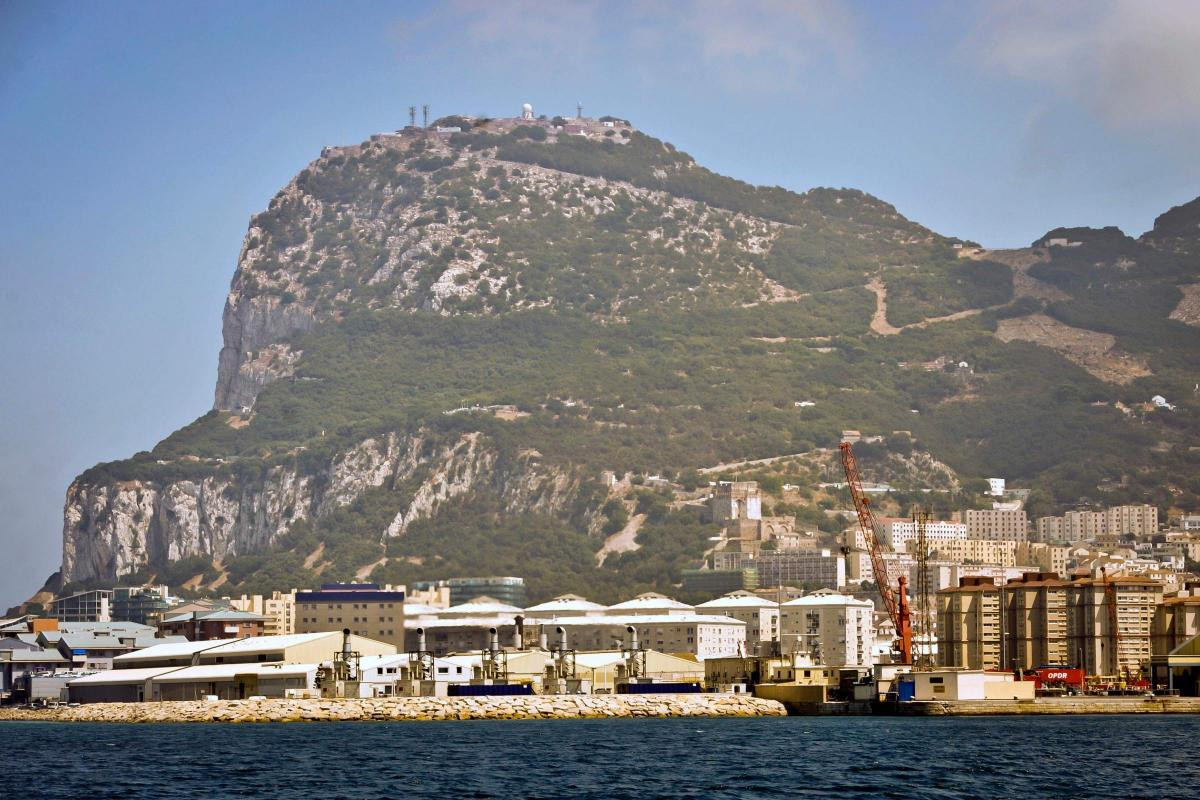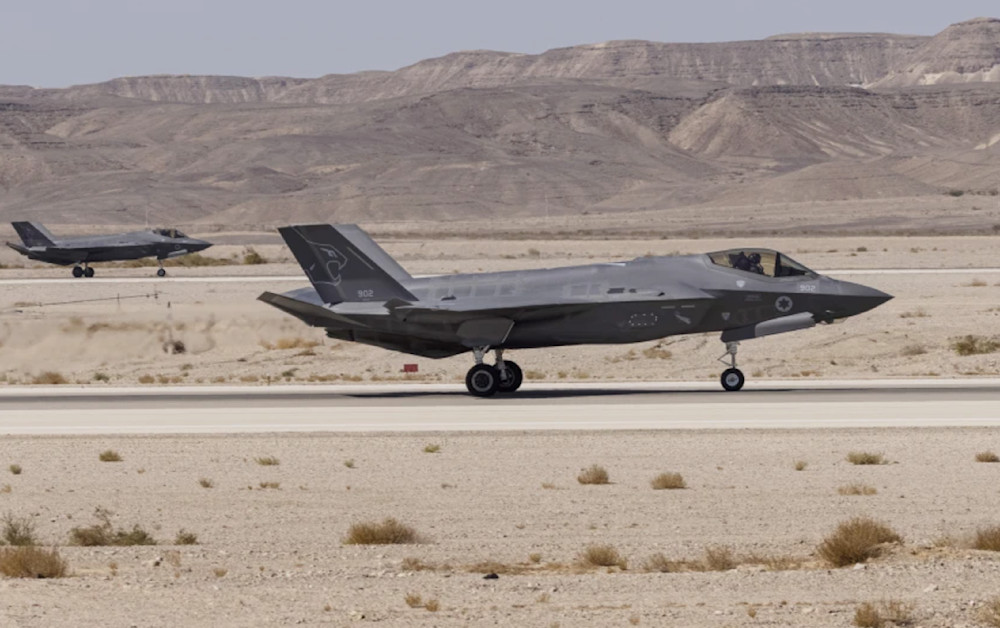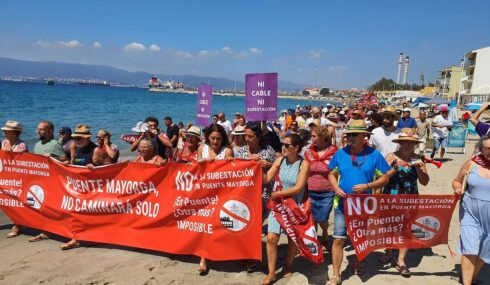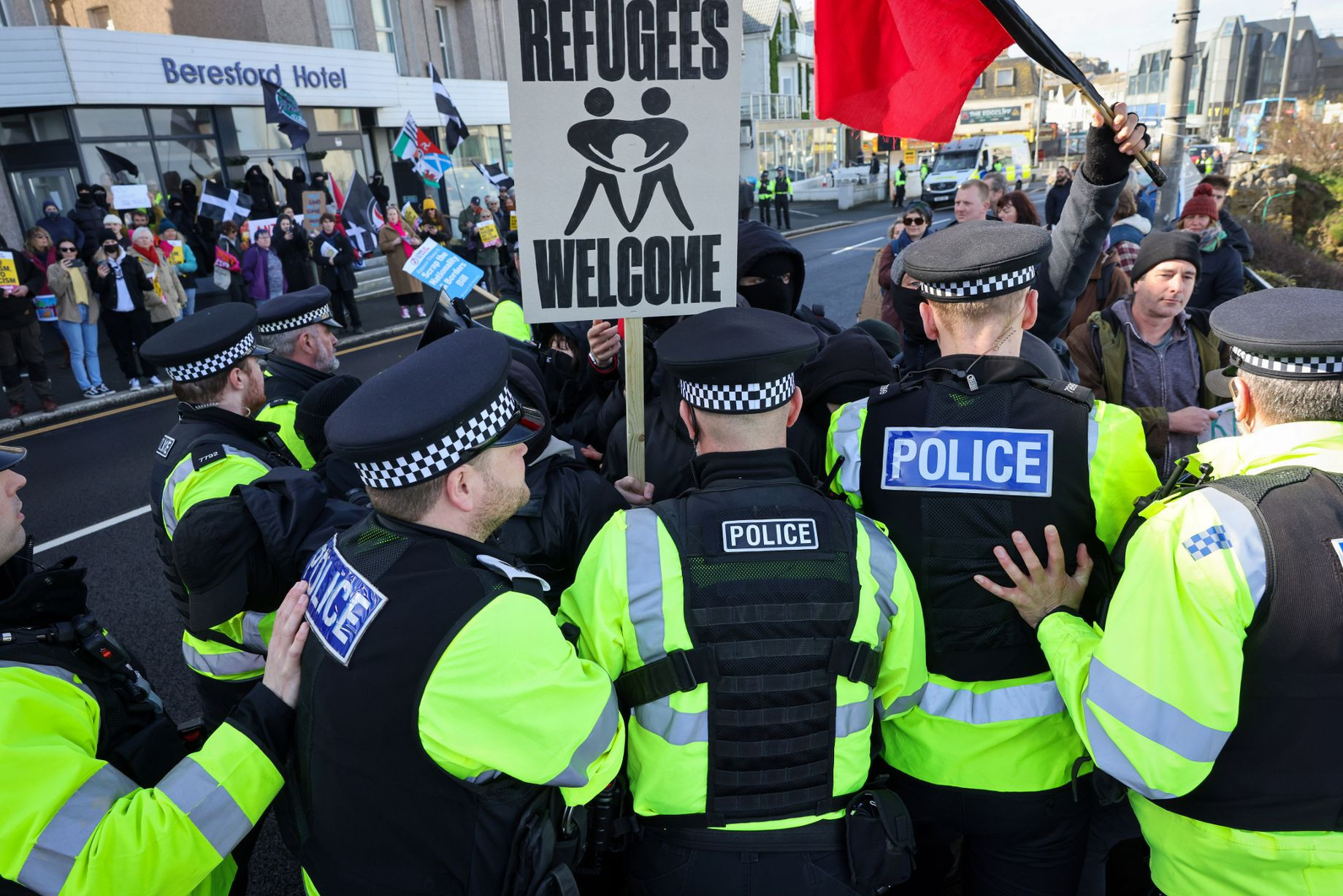The arrival of the US-flagged oil tanker Overseas Santorini headed for Israel has sparked a major political controversy in Gibraltar and neighboring Spain. The tanker, carrying approximately 300,000 barrels of military-grade jet fuel, arrived in Gibraltar on July 30, 2024, night amid ongoing protests and calls for intervention by local and international authorities.
The Overseas Santorini, owned by the Overseas Shipping Group (OSG), is believed to be transporting fuel for the Israeli military, possibly for F-16 and F-35 fighter jets involved in operations in Gaza. This has triggered widespread condemnation, with activists and politicians raising concerns about the potential use of the fuel in the ongoing conflict.
International Pressure Mounts
The international campaign “No Harbour for Genocide (NHFG)” has called on Mediterranean ports to deny docking rights to tankers supplying jet fuel to Israel. The campaign targets two vessels, the Overseas Santorini and Overseas Sun Coast, both allegedly transporting military-grade JP-8 fuel from Valero Energy’s Corpus Christi refinery in Texas to Israel’s Port Ashkelon since 2014. The shipments, occurring roughly every two months, carry approximately 300,000 barrels each—enough to refuel an F-16 fighter jet about 12,000 times.
Calls for Sanctions
Francesca Albanese, UN Special Rapporteur for the occupied Palestinian territories, has called for immediate oil sanctions and an arms embargo against Israel. She stated, “At this point, Israel has breached its international obligations to the extent that it justifies the urgent application of immediate and unconditional sanctions, which should first and foremost entail an arms and oil embargo.”
The campaign urges Mediterranean port cities to refuse entry to these tankers and calls on states to comply with their obligations under the Genocide Convention. It specifically references Israel’s alleged violation of the International Court of Justice’s 24 May order to cease operations in Gaza.
Gibraltar in the Spotlight
British MPs, including former International Development Select Committee chair Sarah Champion and ex-shadow Chancellor John McDonnell, have urged UK Foreign Secretary David Lammy to stop the tanker from docking at Gibraltar. They argue that allowing the vessel to bunker at Gibraltar would make the territory involved in Israel’s alleged violations of international laws and contribute to the ongoing conflict in Gaza.
Concerns Over Complicity
The letter to Lammy and Fabian Picardo, the chief minister of Gibraltar, came from a cross-party group of MPs including members of the Scottish Nationalists, Labour and Green parties. The letter states, “The jet fuel will be unloaded and used to fuel the Israeli air force’s F16 and F35 that drop bombs on the people of Gaza. The 300,000 barrels of fuel are sufficient for around 12,000 F-16 refuellings.”
The MPs have urged the government to “prohibit and prevent Gibraltar being used as a haven for the transport of military fuel used in Israel’s assault on Gaza”. They argue that the use of Gibraltar’s facilities would make the territory complicit in Israel’s breaches of international law. They highlight the devastating consequences of the conflict, stating, “Tens of thousands of Palestinians have been killed in Israel’s assault.”
Spain’s Opposition
Protests in Spain by trade unionists and activists have already resulted in the owners of the Overseas Santorini abandoning plans to dock in the Spanish port of Algeciras. The campaigners, citing a UN investigation, point out that it was probably an F-16, built using UK parts, that bombed British doctors from Medical Aid for Palestinians at a compound in Gaza in January.
Port Workers and Politicians Unite
The campaign’s pressure led to the port-worker unions UGT and CCOO backing it, and Spanish politicians – including the current and former Podemos leaders Ione Belarra and Pablo Iglesias, as well as Sumar, the junior coalition party in government – denouncing the planned docking of the Overseas Santorini. The Spanish government has made efforts to stop weapons-laden ships from entering its ports. Similar measures have been implemented in other countries, including Australia.
A Complex Dilemma
The situation presents a complex dilemma for Gibraltar, which is a British Overseas Territory. The government has insisted that the tanker has not requested to dock in Gibraltar or use any of its port services. However, the fact that the vessel is heading towards Gibraltar, after being denied entry in Algeciras, highlights the growing international pressure on the territory.
A Test of Principle
The decision by Gibraltar to allow or deny the tanker’s docking will be a test of its commitment to international law and its position on the conflict in Gaza. The situation also puts the UK government in a difficult position, as it is responsible for Gibraltar’s foreign affairs. The UK government has already faced criticism for its support of Israel, and this latest incident is likely to further strain relations.
Looking Ahead
The Overseas Santorini’s journey is closely watched by international activists and observers. The potential use of the jet fuel in Israel’s military operations in Gaza raises serious ethical and legal questions. As the tanker moves towards its destination, the international community will be closely watching Gibraltar’s response, which could have far-reaching consequences for the ongoing conflict in the region.
A Matter of Principle
The saga of the Overseas Santorini is a testament to the growing international pressure on Israel’s military actions in Gaza. The campaign against the tanker reflects a growing global awareness of the humanitarian crisis in Gaza and the need for accountability for Israel’s actions. The outcome of the tanker’s journey will be a significant test for the international community’s commitment to upholding international law and ensuring the protection of civilians in conflict zones.
This incident also raises questions about the role of companies like Valero Energy in supplying fuel to militaries involved in conflicts. As the world grapples with the ethical implications of such activities, it remains to be seen whether this event will be a turning point in the international response to the Israeli-Palestinian conflict.



















